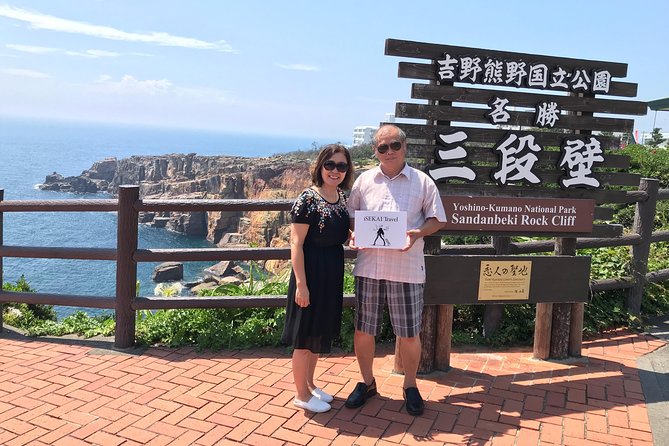Okinawa, a tropical paradise in Japan, is home to a delightful array of traditional sweets that are as captivating as the island itself. In this article, we explore the fascinating world of Okinawan cuisine, focusing on the art of creating and savoring these mouthwatering treats.
With a duration of 2 hours and the option for free cancellation up to 24 hours in advance, participants can enjoy the experience of making Okinawan sweets. Led by a knowledgeable tour guide fluent in both Japanese and English, this activity provides insight into the significance of these sweets in Okinawan ceremonies and their role in health prayers and warding off evil.
Whether you are a culinary enthusiast or simply intrigued by the unique flavors of Okinawa, this experience promises to be a delightful and educational journey into the world of traditional Okinawan sweets.
Quick Takeaways
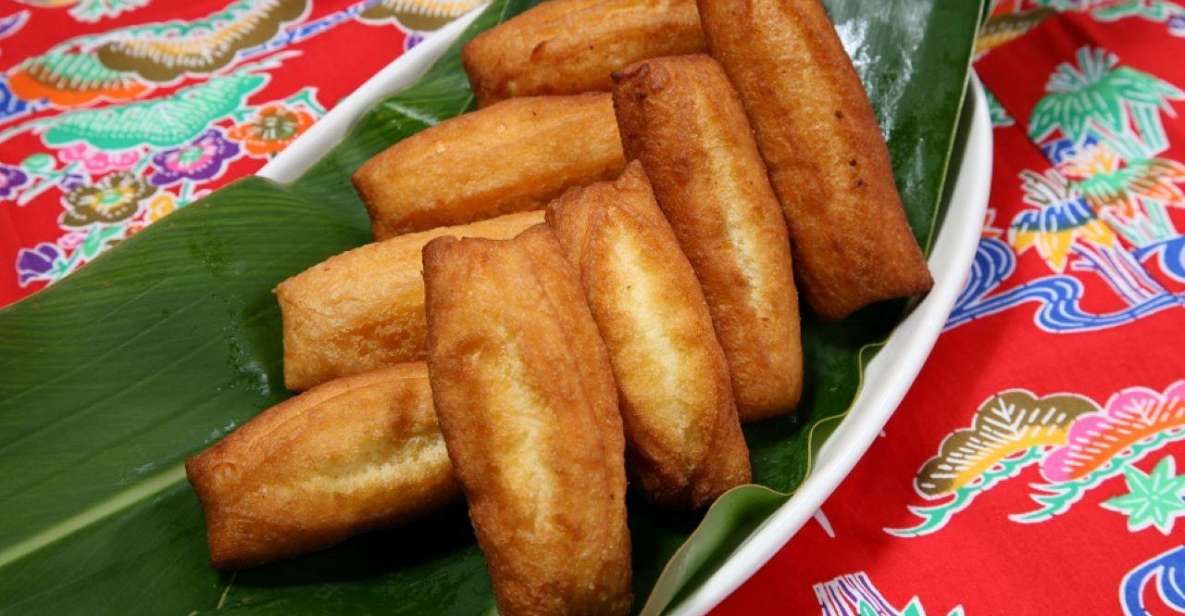
- Free cancellation available, allowing for flexibility in travel plans
- Participants can take home souvenirs, enhancing the experience
- Okinawan traditional sweets are used for health prayers and warding off evil, showcasing their cultural significance
- Participants need to bring their own apron, indicating active participation in the cooking activity
Not for you? Here's a few more great tours and experiences nearby.
Health Benefits of Okinawan Traditional Sweets
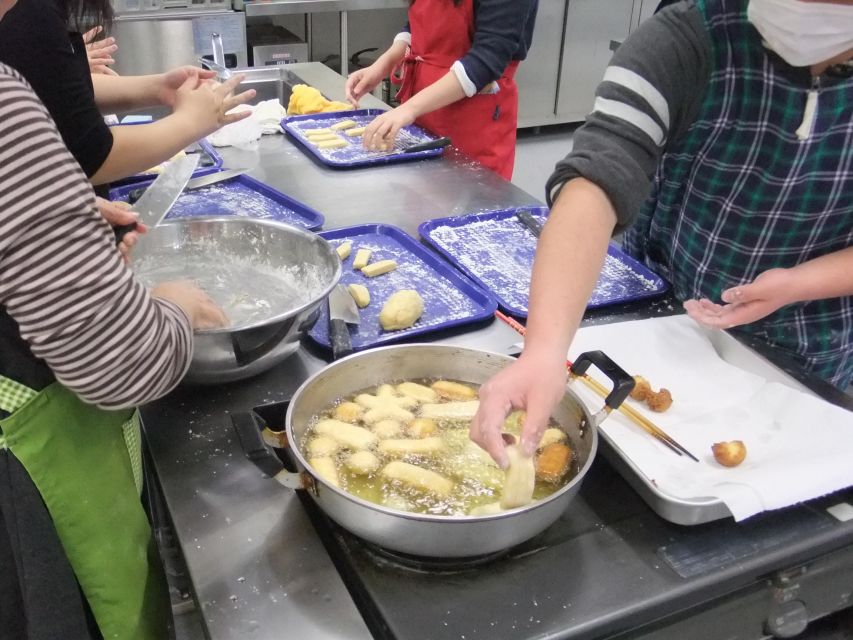
Okinawan traditional sweets offer numerous health benefits for those who indulge in them. These sweets have long been associated with the longevity of the Okinawan people, who are known for their exceptional health and longevity.
Traditional Okinawan sweets aren’t only delicious treats, but they also hold a significant place in the cultural heritage of Okinawa. They’re often used in ceremonies and celebrations, symbolizing good luck, health, and prosperity. By indulging in these traditional sweets, individuals not only enjoy their delicious taste but also connect with the rich cultural heritage of Okinawa.
One of the key benefits of Okinawan sweets is their role in promoting longevity. These sweets are often made with wholesome ingredients like sweet potatoes, adzuki beans, and brown sugar, which are rich in antioxidants and nutrients. These ingredients have been linked to reducing the risk of chronic diseases and promoting overall well-being. Plus, the traditional preparation methods of these sweets help to retain the nutritional value of the ingredients.
You can also read our reviews of more tours and experiences in onna.
Authentic Ingredients Used in Okinawan Sweets
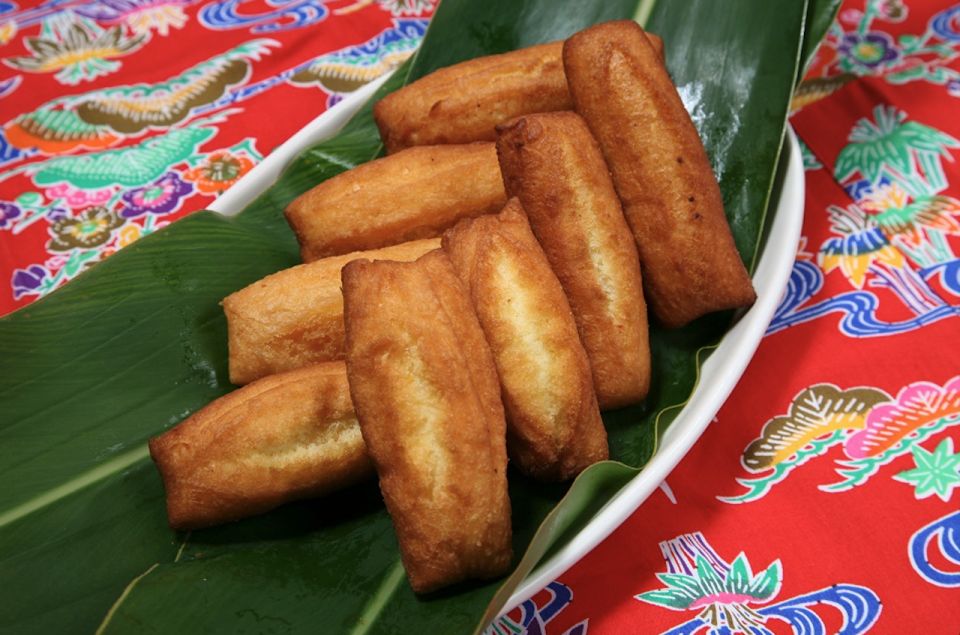
Traditional Okinawan sweets are made using authentic ingredients that are both flavorful and nutritious. These ingredients not only provide health benefits but also hold cultural significance in Okinawan cuisine. The table below showcases some of the key ingredients used in making these delectable treats:
| Ingredient | Health Benefits | Cultural Significance |
|---|---|---|
| Purple Yam | Rich in fiber and antioxidants | Symbolizes longevity and good luck |
| Mochi Rice | Gluten-free and low in fat | Used in ceremonies and festivals |
| Black Sugar | Contains minerals and vitamins | Represents good fortune |
| Pineapple | High in vitamin C and bromelain | Considered a symbol of hospitality |
| Kokuto Sugar | Rich in iron and calcium | Used in traditional Okinawan tea |
These authentic ingredients not only contribute to the unique flavors of Okinawan sweets but also provide various health benefits. Plus, they hold cultural significance, making these sweets an integral part of Okinawan traditions and celebrations.
Significance of Okinawan Sweets in Ceremonies
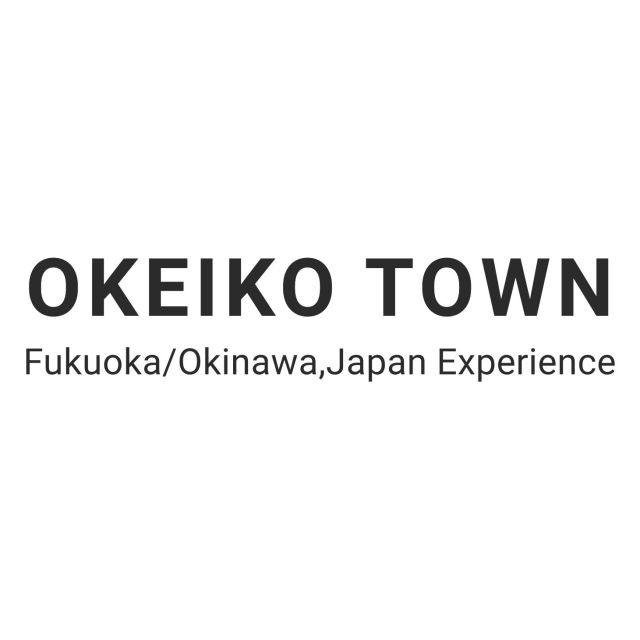
In ceremonies, Okinawan sweets hold significant importance due to their symbolic value and cultural significance. These traditional sweets play a central role in various local ceremonies and rituals, reflecting the deep-rooted cultural traditions of Okinawa.
The importance of Okinawan sweets in the local culture can be seen in their use during health prayers and warding off evil spirits. These sweets are believed to bring good luck, prosperity, and protection to the participants. They’re carefully prepared using authentic ingredients and traditional techniques, passed down through generations.
Okinawan sweets are often offered to deities and ancestors as a way to show respect and gratitude. They serve as a means of connecting with the spiritual realm and preserving the cultural heritage of Okinawa.
The cultural significance of these sweets isn’t only seen in their role in ceremonies but also in their popularity among locals and travelers alike, as they provide a taste of Okinawa’s rich culinary traditions.
Traditional Okinawan Sweets for Warding off Evil
One popular way to ward off evil in Okinawa is by indulging in traditional sweets. The significance of traditional Okinawan sweets in local culture and customs can’t be overstated. These delectable treats aren’t only a delight to the taste buds but also play a role in spiritual rituals and ceremonies.
Exploring the different varieties of Okinawan traditional sweets reveals their unique ingredients and flavors. Here are three examples:
- Chinsuko: These crumbly, buttery cookies are a staple in Okinawan households. They’re often offered as a symbol of good luck and protection against evil spirits.
- Sata Andagi: These deep-fried dough balls are similar to donuts and are commonly enjoyed during festivals and celebrations. They’re believed to bring happiness and ward off negativity.
- Nakami-jiru: This traditional soup is made with pork organs and various vegetables. It’s served during New Year’s celebrations to cleanse the body and ward off evil spirits.
Experience the Art of Making Okinawan Sweets
To truly take in the culture of Okinawa and its traditional sweets, you can experience the art of making these delectable treats firsthand. Learning to make Okinawan sweets not only allows one to indulge in the delicious flavors, but it also provides numerous benefits.
By learning traditional recipes, you can preserve the rich culinary heritage of Okinawa and pass it on to future generations. This helps to maintain the cultural significance of Okinawan sweets, which have been used in ceremonies for health prayers and warding off evil.
Plus, the act of making these sweets fosters a sense of connection to the community and a deeper understanding of Okinawan traditions.
Frequently Asked Questions
Are There Any Age Restrictions for Participating in the Okinawan Sweets Making Activity?
There are no age restrictions for participating in the Okinawan sweets making activity. However, participants with dietary restrictions should inform the tour guide in advance to ensure suitable options are available.
Can Participants Customize the Menu and Choose Different Sweets to Make?
Yes, participants can customize the menu and choose different sweets to make during the activity. They have the option to select from a variety of traditional Okinawan sweets to suit their preferences.
Is There a Minimum Number of Participants Required for the Activity to Take Place?
There is no minimum number of participants required for the activity to take place. However, it is important to note that the activity is not suitable for people with heart problems due to its nature.
Can Participants With Dietary Restrictions or Allergies Still Participate in the Activity?
Participants with dietary restrictions or allergies can still participate in the activity. The organizers make accommodations for dietary restrictions or allergies, ensuring that everyone can enjoy the traditional Okinawan sweets without any concerns.
Is There a Dress Code or Any Specific Clothing Requirements for the Activity?
There is no specific dress code or clothing requirements for the activity. Participants can wear comfortable attire. The focus is on learning about and enjoying traditional Okinawan sweets, not on specific clothing choices.
The Sum Up
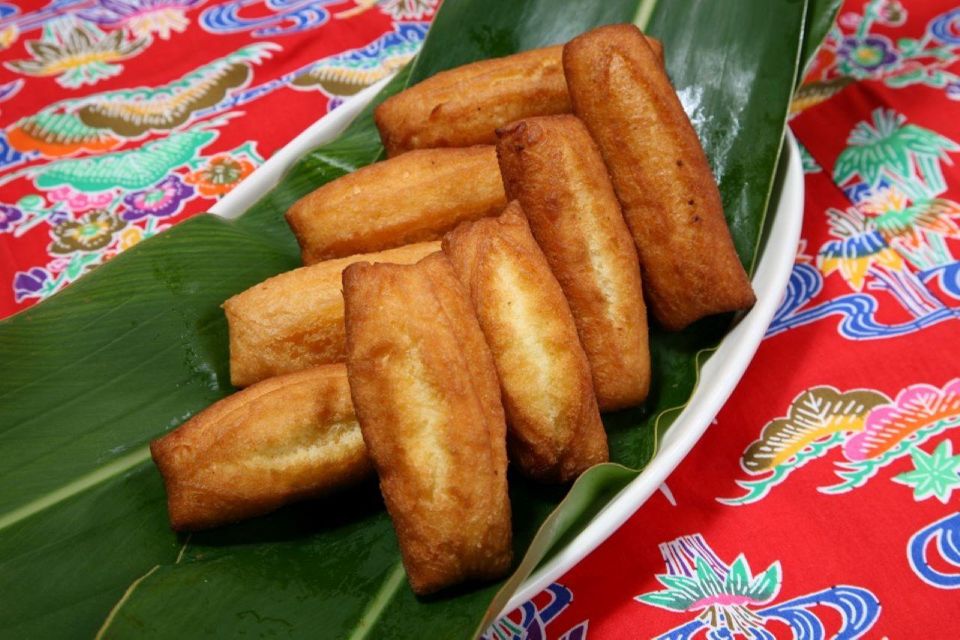
Discover the enchanting world of traditional Okinawan sweets and indulge in their delicious flavors. From their health benefits to their role in ceremonies, these treats offer a glimpse into the rich cultural heritage of Okinawa.
Join our immersive activity and learn how to create these mouthwatering delicacies, led by a knowledgeable guide. Whether you’re a culinary enthusiast or simply curious about Okinawan cuisine, this experience promises to be an enlightening and delectable journey.
Book now and embark on a sweet adventure in paradise.

